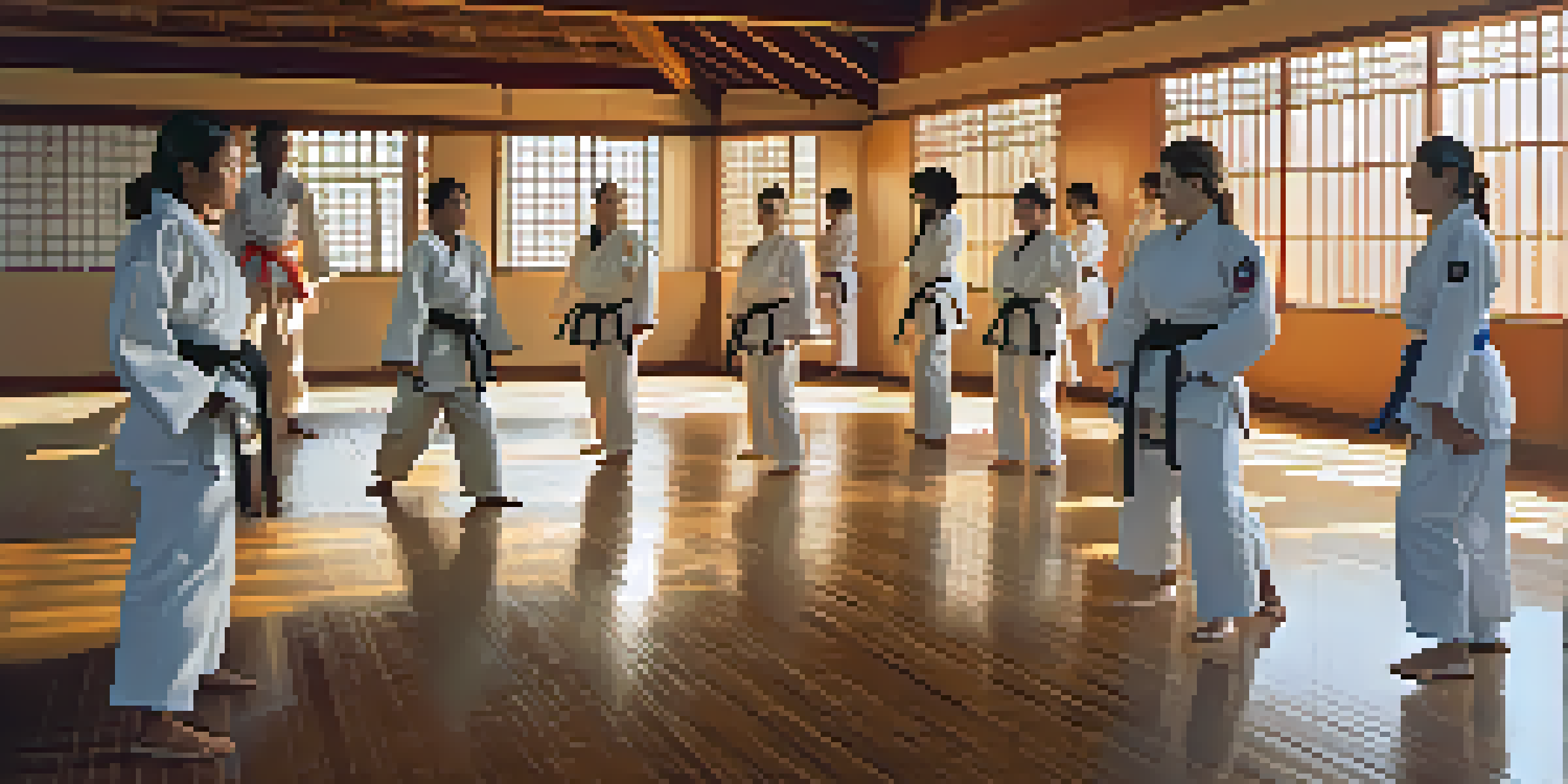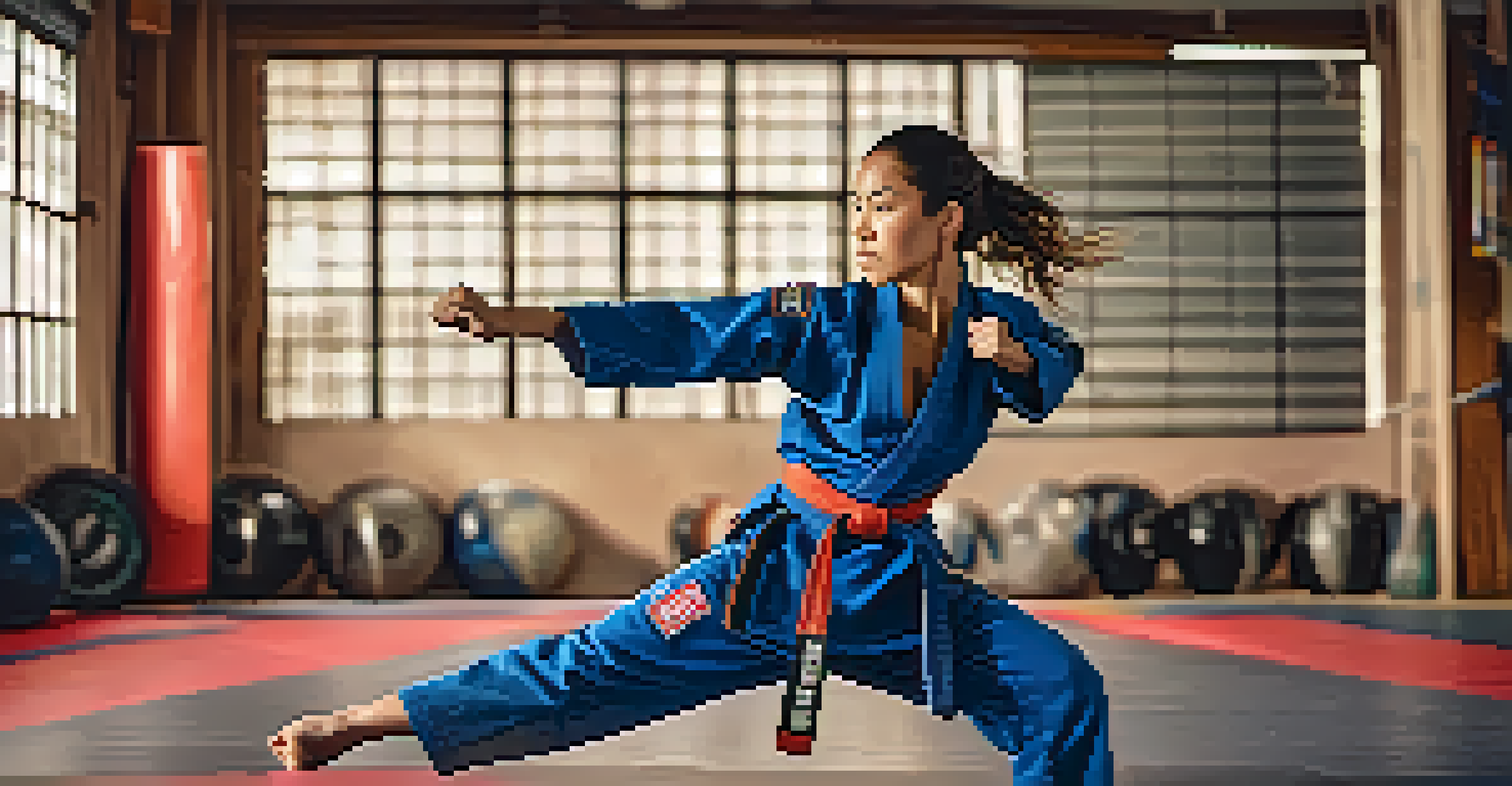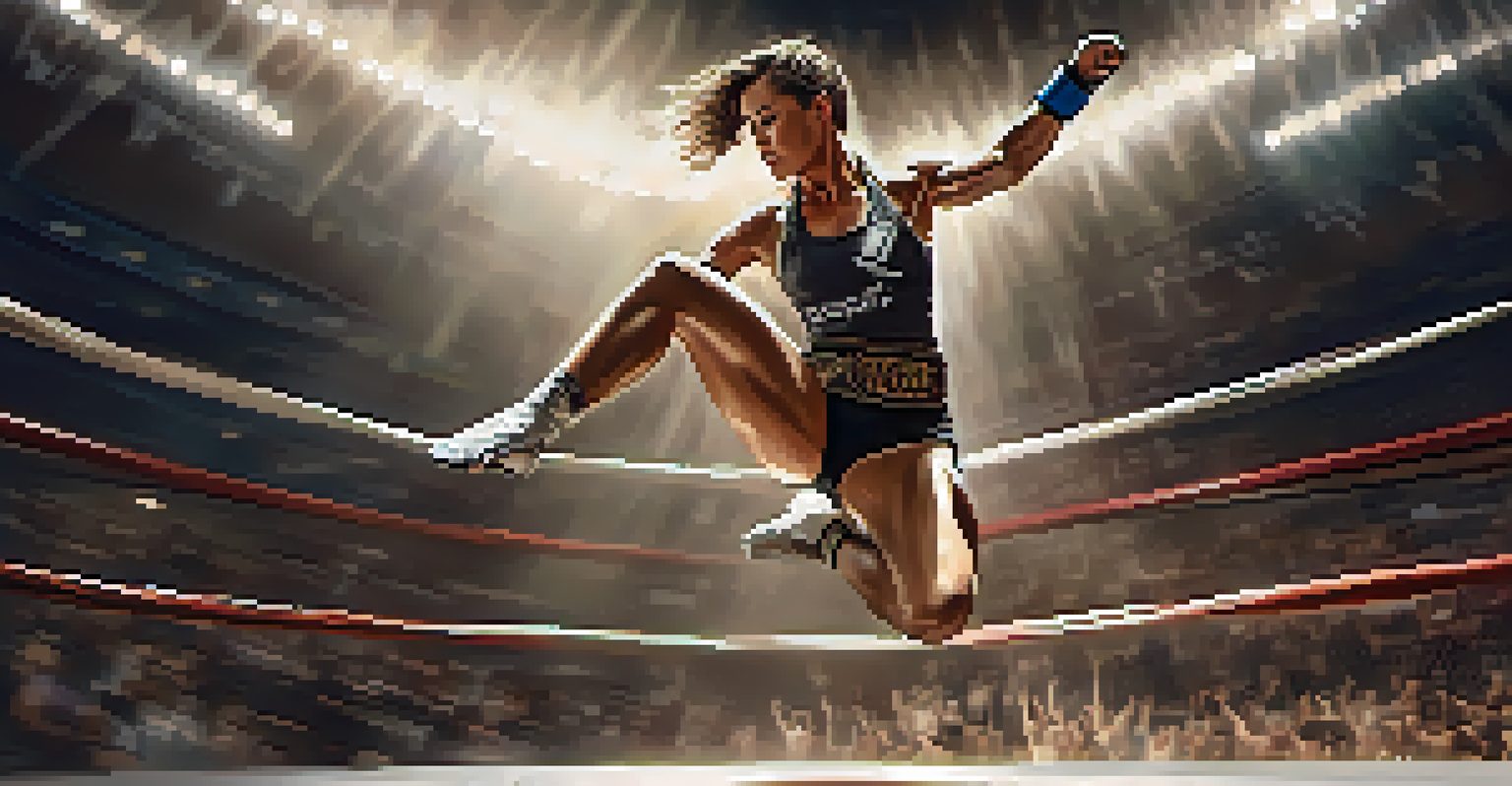Breaking Barriers: Women in Competitive Martial Arts

The Rise of Women in Martial Arts
In recent years, there has been a remarkable shift in the representation of women in martial arts. From the dojo to the ring, women are stepping up and making their presence felt in a traditionally male-dominated space. This rise isn’t just about participation; it’s about breaking boundaries and reshaping the narrative around martial arts.
The strongest factor for success is self-esteem: Believing you can do it, believing you deserve it, believing you will get it.
Many women are now earning accolades in various disciplines, including judo, karate, Brazilian jiu-jitsu, and mixed martial arts (MMA). These athletes are not only champions in their respective fields but also role models for aspiring martial artists everywhere. Their achievements inspire younger generations to pursue their passions without fear of societal limitations.
As these women push through barriers, they also challenge stereotypes that have long existed in the martial arts community. By excelling in competitive environments, they are redefining what it means to be a martial artist and paving the way for future female fighters.
Challenges Faced by Women in Martial Arts
Despite the progress, women in martial arts often face unique challenges that can hinder their growth. Issues such as gender bias, lack of representation, and inadequate support systems are all hurdles that female fighters must navigate. These obstacles can be disheartening, but they also serve as a catalyst for change.

For example, women frequently encounter skepticism about their capabilities, especially in high-contact sports like MMA or boxing. Such doubt can create a hostile environment, making it crucial for female athletes to remain resilient and determined. Support from coaches, fellow athletes, and organizations can play a pivotal role in helping them overcome these challenges.
Women Break Barriers in Martial Arts
Women are not only participating in martial arts but are also reshaping the narrative and challenging long-standing stereotypes.
Moreover, the lack of female role models in coaching and leadership positions can perpetuate the cycle of underrepresentation. However, as more women achieve success, they create pathways for others to follow, gradually shifting the landscape of martial arts toward inclusivity.
Trailblazers: Women Who Inspire
Throughout history, many women have made significant contributions to martial arts, paving the way for future generations. Icons like Ronda Rousey and Michelle Waterson have not only excelled in their sports but have also become household names, inspiring millions. Their journeys highlight the power of perseverance and the importance of believing in oneself.
Women are the largest untapped reservoir of talent in the world.
These trailblazers have demonstrated that women can compete at the highest levels and achieve extraordinary success. Their stories are filled with grit, determination, and a passion for martial arts that resonates with fans worldwide. By sharing their experiences, they uplift others who may be hesitant to pursue their own martial arts journey.
As more female athletes emerge and gain recognition, their impact becomes increasingly profound. They not only inspire but also create a sense of community, encouraging camaraderie among women in martial arts and fostering an environment where everyone can thrive.
Community Support and Women's Empowerment
Community plays a vital role in the empowerment of women in martial arts. Supportive training environments, mentorship programs, and female-only classes are essential for fostering growth and confidence. These spaces allow women to train without fear of judgment, encouraging them to explore their potential.
Organizations dedicated to women's martial arts are emerging, providing resources and support tailored specifically for female athletes. From workshops to competitions, these initiatives aim to elevate women in the sport and create a sense of belonging. Such community-driven efforts are crucial for building a strong foundation for future female martial artists.
Community Supports Female Fighters
Supportive environments and mentorship programs are essential for empowering women in martial arts and fostering their growth.
By uplifting one another, women in martial arts are not just breaking barriers; they are also creating a legacy of empowerment and resilience. This sense of community helps to solidify their place in the martial arts world and encourages more women to join the ranks.
The Role of Media in Changing Perceptions
Media representation plays a critical role in shaping public perceptions of women in martial arts. Documentaries, social media platforms, and news coverage can highlight female athletes' achievements and challenges, helping to normalize their presence in the sport. Positive portrayals can inspire aspiring martial artists and change how society views women in combat sports.
Moreover, with the rise of social media, female fighters have a unique opportunity to share their stories and connect with fans directly. This engagement not only fosters a sense of community but also allows them to challenge stereotypes and advocate for greater recognition in the sport. The more visibility they gain, the more they can inspire others to break free from traditional gender roles.
As media continues to evolve, it has the potential to amplify women's voices in martial arts, showcasing their dedication, skill, and resilience. By highlighting diverse narratives and experiences, media can further influence cultural attitudes, making martial arts a more inclusive space for everyone.
Training Regimens: Balancing Strength and Technique
Successful women in martial arts often emphasize the importance of a well-rounded training regimen that balances strength, technique, and mental conditioning. They understand that physical prowess is only part of the equation; mental resilience and strategic thinking are equally crucial. This holistic approach helps them excel in competitive environments.
For instance, many female martial artists incorporate various training methods, such as strength training, cardio, and skill-specific drills. This variety not only enhances their physical abilities but also keeps their training engaging and dynamic. By focusing on all aspects of their performance, they are better prepared for the challenges they may face in competition.
Media Amplifies Women's Achievements
Positive media representation is crucial for normalizing women's presence in martial arts and inspiring future generations of female athletes.
Additionally, mental preparation plays a significant role in their success. Visualization techniques, meditation, and goal-setting are common practices that help female athletes maintain focus and confidence. By cultivating a strong mindset, they can overcome obstacles and approach each challenge with determination.
The Future of Women in Martial Arts
Looking ahead, the future of women in martial arts appears bright. As more women enter the sport and gain recognition, they will continue to inspire future generations. The ongoing push for gender equality in sports will likely lead to increased opportunities and resources for female martial artists, further shaping the landscape.
With the support of organizations, communities, and media, women will have the chance to break even more barriers and redefine what it means to be a martial artist. This growing momentum can create a ripple effect, encouraging young girls to step into the dojo or ring and pursue their dreams fearlessly.

Ultimately, the journey of women in martial arts is about more than just competition; it's about empowerment, community, and creating a legacy that inspires and uplifts. As we celebrate their achievements, we also look forward to a future where women’s contributions to martial arts are recognized and valued equally.